By Lynn Hallarman
The Village of Port Jefferson board of trustees held its June work session addressing several key topics, including recommendations by the Citizens Committee on Erosion regarding Phase 2 of the East Beach Bluff Stabilization Project. Trustee Stan Loucks was not present.
Infrastructure projects
The board reviewed major infrastructure investments funded in part by the Federal Emergency Management Agency and other grants. Trustees allocated $85,798 for storm drain cleaning, with 35 problematic drains identified so far and $322,000 for Sand Lane culvert repairs following damage sustained during the August 2023 storm.
“I’m so excited about this,” said Trustee Kyle Hill.
L.K. McLean Associates, a Brookhaven-based engineering firm, is assisting the village in flood prevention efforts. Work is underway, including drone-based topographical mapping and meetings with local stakeholders, such as the Port Jefferson School District and fire commissioners.
“They’ve hit the ground running,” said Mayor Lauren Sheprow. “There’s real potential for design solutions that make a difference.”
Public safety
Hill updated the board on enforcement activities and public safety. He proposed extending noise ordinance protections to include federal holidays and suggested relocating a speed reader to East Main Street to address speeding complaints.
Financial oversight & technology
Treasurer Stephen Gaffga reported $1.9 million in golf club membership revenue and discussed preparations for the fiscal year 2025 audit. A finalized capital asset valuation report has resolved a decades-long material weakness flagged by auditors.
The village is also implementing new software to enhance cybersecurity as it prepares to transition to a .gov domain.
Single-use plastics
Trustees Bob Juliano and Hill reviewed a draft proposal to ban single-use plastics for renters at the Village Center. The proposal emphasizes known environmental hazards linked to fossil-fuel-derived single-use plastics. Once discarded, these plastics are often incinerated at high temperatures, a process that requires hundreds of millions of gallons of water from Long Island’s aquifers, according to local experts cited in the proposal.
The Port Jefferson=based Eco-League has offered to create an appendix listing sources for compliant cutlery and cups. The Main Street business, Simple Good, has volunteered to act as a local preferred vendor for eco-friendly alternatives, according to Hill.
Village residents Myrna Gordon and Holly Fils-Aime championed the initiative. Gordon rushed to Village Hall during the work group session to personally thank the board for moving forward with the initiative. The board will take a final vote at the next trustees public meeting.
Bluff report
Residents Flemming Videbaek and Bob Laravie of the Citizens Commission on Erosion delivered a presentation on the East Beach Bluff Stabilization Project. Chair David Knauf was unable to attend. Videbaek provided an overview of the commission’s interim report on Phase 2.
Sheprow formed the volunteer commission in the fall of 2024 after residents raised concerns that the multi-million-dollar, multiphase stabilization project lacked sufficient community input.
The commission’s report evaluates plans for Phase 2, which includes installing a 545-foot-long, 47-foot-deep steel barrier along the bluff’s crest, just seaward of the Port Jefferson Country Club. The wall is intended to stabilize the club building and prevent it from collapsing onto the shoreline.
“The main focus of the report is to analyze Phase 2, look at alternatives, assess the pros and cons of each option and conduct a risk analysis,” Videbaek said.
He stressed the importance of conducting a full cost-benefit analysis, including consideration of rebuilding the clubhouse to a less vulnerable inland site before moving forward with the Phase 2 wall build.
“A detailed fiscal analysis of the total project cost and options should be presented to the taxpayers before construction begins,” he said. “It must be emphasized that at some point the relocation of the building will be necessary.”
Laravie focused his comments on drainage issues at the bluff’s crest and the importance of coordinating plans with Lessing’s Hospitality Group, the newly contracted catering company for the country club, which is planning a “plantings beautification project” in the area affected by drainage problems.
Hill commented on the importance of smart landscaping in this area, suggesting the use of native plants instead of nonnative ornamentals.
“Native plants need to be watered less— I’m imagining we would not want to be running sprinklers right there every day” Hill said.
The mayor did not comment on the commission’s request for comprehensive cost analysis including a possible retreat plan, but reiterated her goal is to develop a master plan for the country club that includes the future of the club building.
“We need a master plan,” Trustee Xena Urgrinsky said. “I would love to see more reasons for nongolfers to visit. I’d also like to see a design for the green spaces.”
To view the full report, visit the village website and search for “Citizens Commission on Erosion.”
The next public meeting of the Board of Trustees is scheduled for June 25 at 6 p.m. at Village Hall.

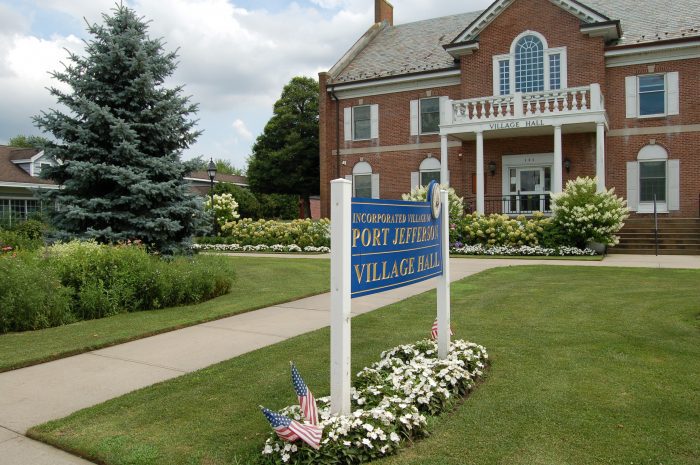
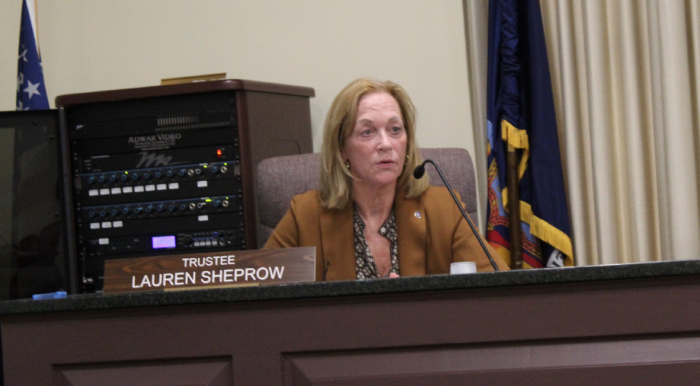

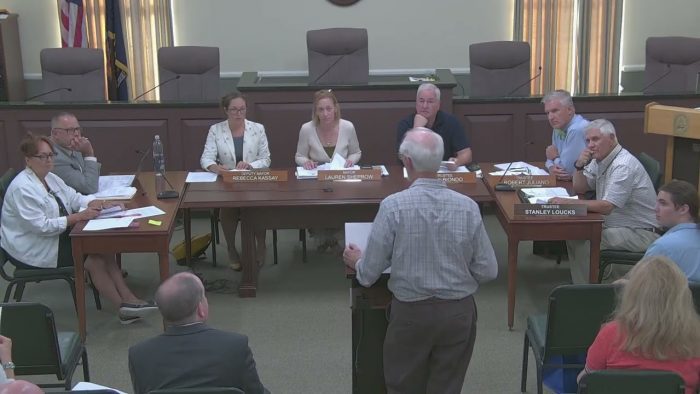
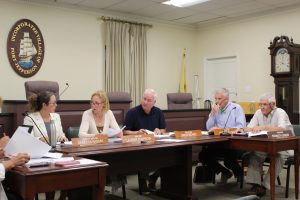


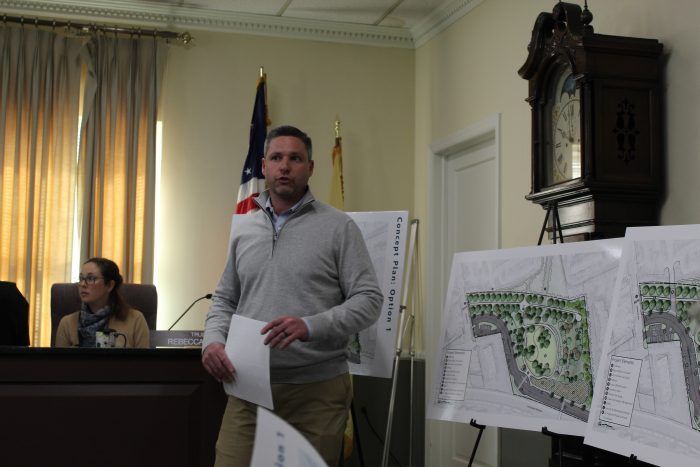



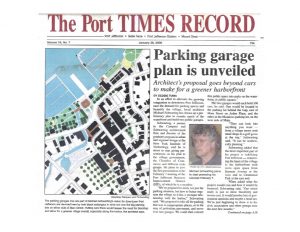 As the village has increased parking capacity with more area and asphalt devoted to off-street parking, the less it has felt like an intimate village. Finding a spot, and the walk from your car — through other cars — to Main Street is not a pleasant start to a visit. In the planning to accommodate the car, the harbor front was converted from shipbuilding to parking, absurdly giving the car the best view of the harbor.
As the village has increased parking capacity with more area and asphalt devoted to off-street parking, the less it has felt like an intimate village. Finding a spot, and the walk from your car — through other cars — to Main Street is not a pleasant start to a visit. In the planning to accommodate the car, the harbor front was converted from shipbuilding to parking, absurdly giving the car the best view of the harbor.


